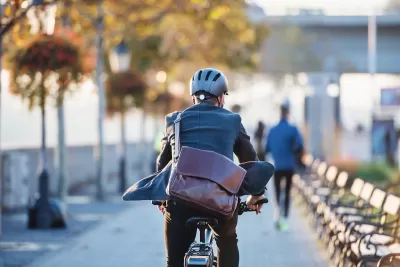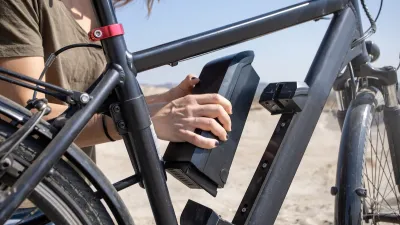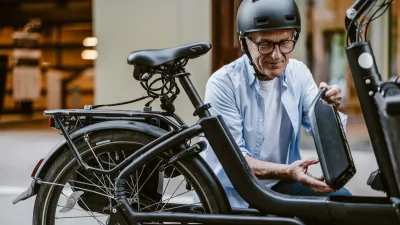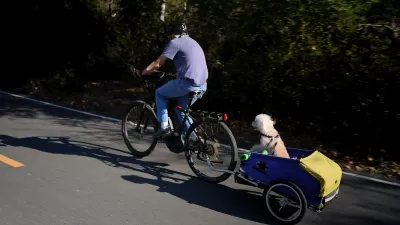How to spot a bad-faith e-bike story.

In an article in Streetsblog, Kea Wilson describes four common tropes used in news articles to denigrate e-bikes in what Wilson calls “a rapidly-emerging genre: the Bad E-Bike Article.”
The first trope—no doubt familiar to all cyclists—is victim-blaming. Using a series of New York Times articles by Matt Richtel as an example, Wilson notes how Richtel blames the death of a 15-year-old boy on the fact that he was riding an e-bike, rather than examining the role of the driver or the 55 mile-per-hour speed limit on the street.
“Notably, his reporting also doesn't include any information about whether or not the driver was cited; the design, speed, or weight of the work van that motorist drove; the actual rates of e-bike "accidents" in the town where Champlain Kingman was killed, which Richtel claims are "on the rise"; or even whether those rates are explained by the rising popularity of the vehicles themselves or how drivers behave around them.”
The other “bad e-bike” tropes: “Spreading myths about modified e-bikes,” “Conflating unsafe teen drivers with unsafe teen cyclists,” and “Ignoring all the good e-bikes can do.” For Wilson, “Perhaps the worst thing about the Richtel series, though, is what's not in it: any mention of all the good that e-bikes are already doing for the world.”
E-bikes may have their issues. But “The frank truth is that, of all of the dangers the Times attributes to e-bikes — grisly crashes, lawless vehicle owners modifying their rides to be more deadly, lives abruptly stolen from children and teens — car drivers and the auto-centric systems that surround them are overwhelmingly more likely to be the culprit, as evidenced by the fact that nearly every crash mentioned across the four stories involves a driver.”
FULL STORY: Four Ways To Spot a Bad E-Bike Article

Maui's Vacation Rental Debate Turns Ugly
Verbal attacks, misinformation campaigns and fistfights plague a high-stakes debate to convert thousands of vacation rentals into long-term housing.

Planetizen Federal Action Tracker
A weekly monitor of how Trump’s orders and actions are impacting planners and planning in America.

Chicago’s Ghost Rails
Just beneath the surface of the modern city lie the remnants of its expansive early 20th-century streetcar system.

Bend, Oregon Zoning Reforms Prioritize Small-Scale Housing
The city altered its zoning code to allow multi-family housing and eliminated parking mandates citywide.

Amtrak Cutting Jobs, Funding to High-Speed Rail
The agency plans to cut 10 percent of its workforce and has confirmed it will not fund new high-speed rail projects.

LA Denies Basic Services to Unhoused Residents
The city has repeatedly failed to respond to requests for trash pickup at encampment sites, and eliminated a program that provided mobile showers and toilets.
Urban Design for Planners 1: Software Tools
This six-course series explores essential urban design concepts using open source software and equips planners with the tools they need to participate fully in the urban design process.
Planning for Universal Design
Learn the tools for implementing Universal Design in planning regulations.
planning NEXT
Appalachian Highlands Housing Partners
Mpact (founded as Rail~Volution)
City of Camden Redevelopment Agency
City of Astoria
City of Portland
City of Laramie





























